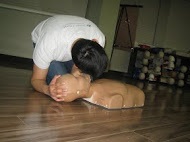
This is one of the most common questions asked by people from different backgrounds: how long the human heart can be stopped before any attempts at resuscitation can prove to be unsuccessful. The answer is that this is not a straightforward issue as such since each emergency is unique to an individual. There are a number of factors that make lead to this, and they include:
– The age of the patient
– The cause of the heartbeat cessation
– Whether there are any underlying conditions the patient suffers from
– The time period within which the victim received help.
Add to this the fact that many rescue stories abound with hope in the face of adversity. Think about people who have been stuck in ice storms and had their heart rate slow down remarkably yet they have survived to tell the story. This goes to show that it is not really about the time that the heart has not been working as there are external factors that the victim cannot control. With this in mind, what are some of the factors that one needs to put in mind when coming to the decision not to continue with resuscitation? Below are some of the top reasons that a first aider must consider when faced with this decision:
– How soon was CPR started when the victim stopped breathing and/or their heart stopped beating?
– How well was the CPR procedure carried out during first aid?
– Was there any medication used on the patient during the administration of CPR?
– What is the medical history of the patient?
– Is there any known cause of the cardiac arrest? This will assist the medics to make a quick decision.
The interplay of all these factors means that it is very important for the medical professional to weigh the pros and cons of stopping CPR. On the flip side, what are the factors to put in mind when one chooses to carry on with CPR?
– What is the potential survival rate of the victim? To put this in perspective, ask yourself what time it took for the victim to get CPR first aid. Ideally, the brain cells start to die after about 5 minutes or so. What this means is that if CPR is going to be administered after 5 minutes, it will serve no purpose since the brain cells will already be dead at the time of administration. It is important, however, to make mention that this time period may extended depending on the conditions present as is the case with hypothermia.
– The second factor to put in mind is whether or not there is any electrical activity present in the heart. If this activity is noticeably absent, it becomes imperative to make sure that there is available an AED that will be used to shock the heart back into action through a process called defibrillation.
– Ultimately, the ideal treatment for such a condition is carrying out CPR with the use of an AED.
